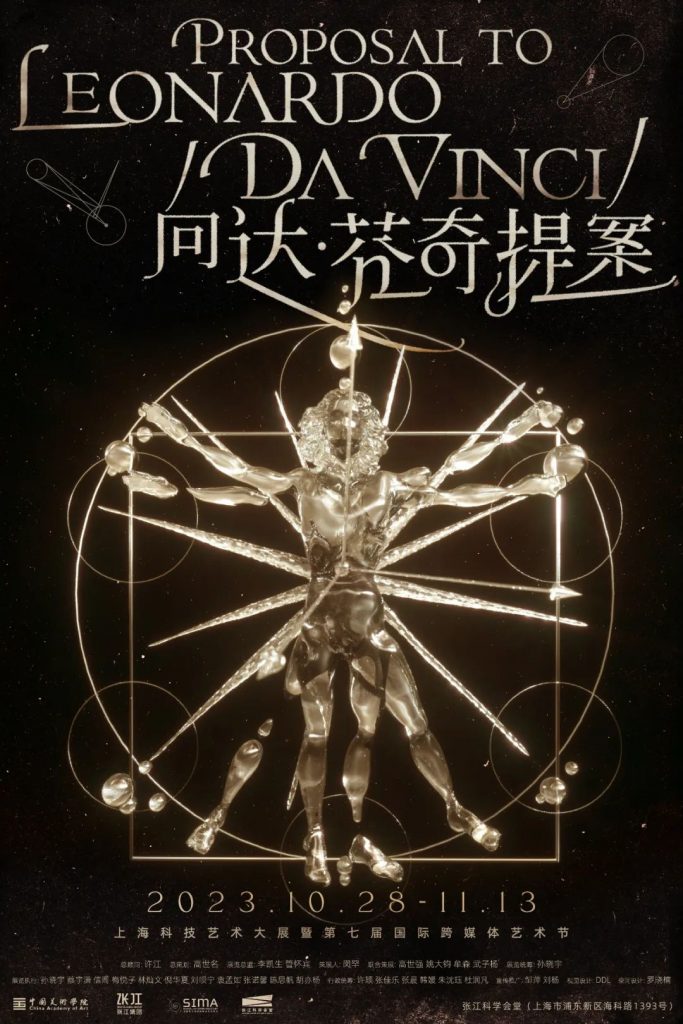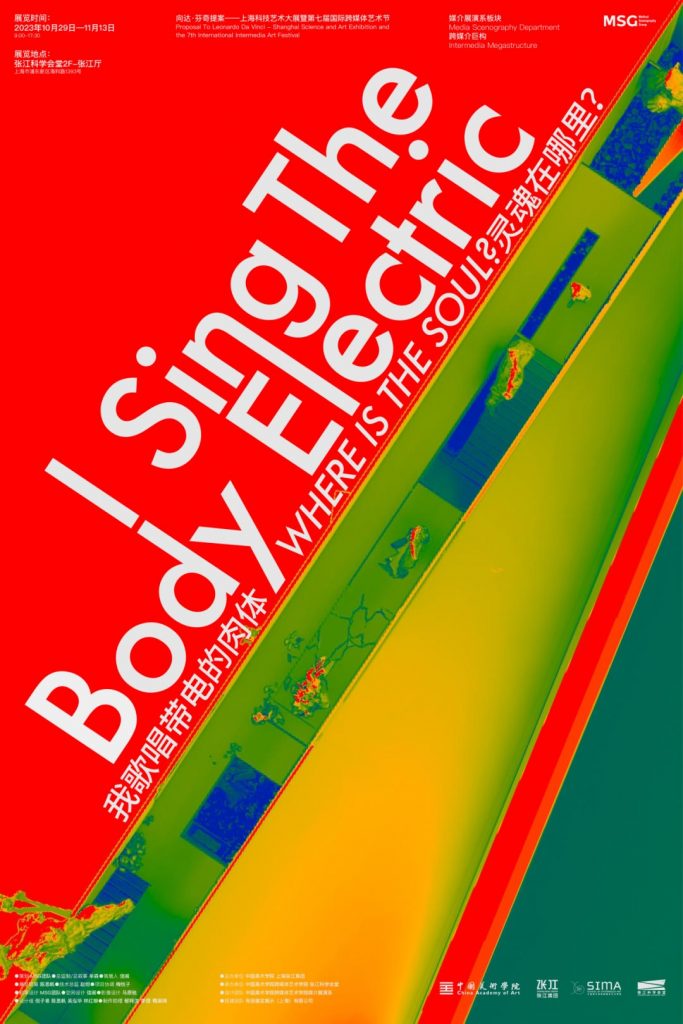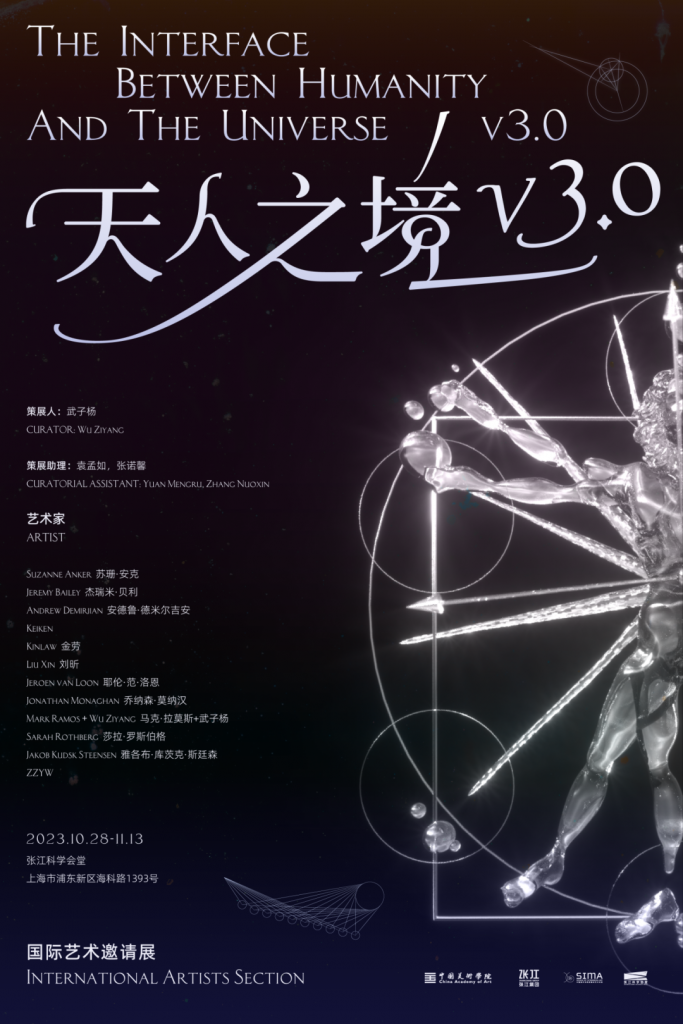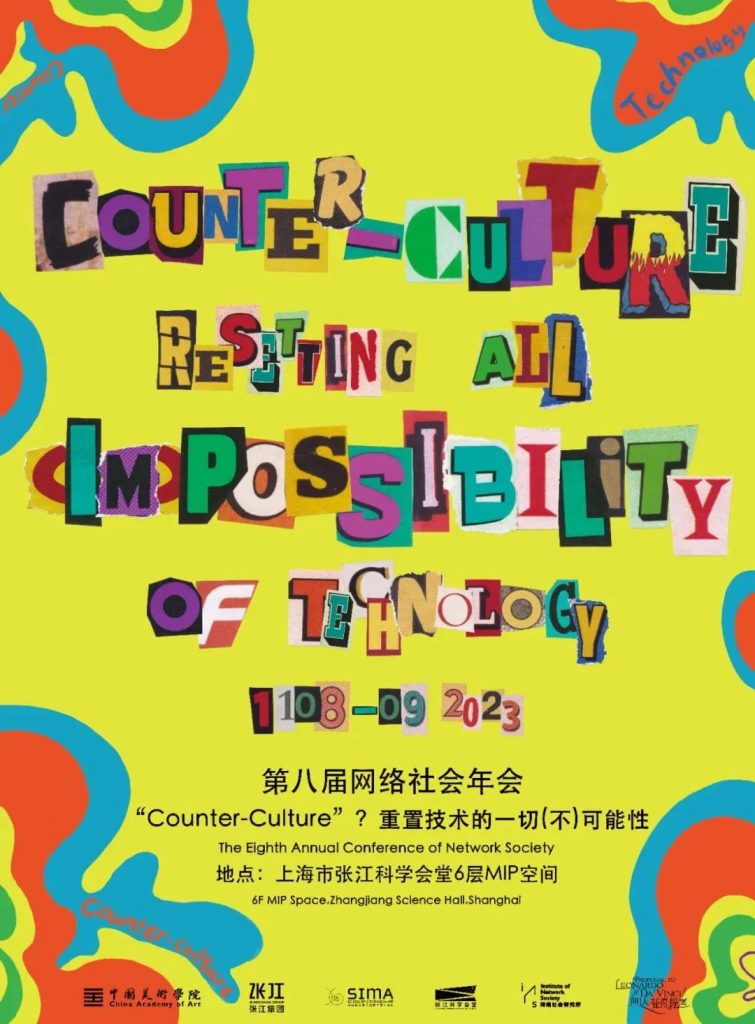
28 Mar 第七届国际跨媒体艺术节|Panel 21:向达·芬奇提案——21世纪的文艺复兴人
引言
通人之学在21世纪是否可能?文艺复兴时期的“全人”达·芬奇,对21世纪有何启示?“新六艺”对中国传统六艺与西方博雅七艺的回应与超越何在?
近代以来,学科逐渐分离,知识系统分裂,人也越来越专家化、原子化、碎片化。从科学与艺术的关系出发探讨通人之学,并不是回到前科学和前技术时代,也并非简单地将科学当作艺术反映的内容,或把艺术作为描述科学的视觉依据。当今的“通人”不是知识意义上的博学广闻。我们希望达到学问与生活相通,安身与立命相通,以回应中国艺术的真正传统——艺理兼通、道术相济、学养相成的贯通之道。
“通人”承载着对历史和现实的无限关怀,同时拥有连通未来的无穷力量。“往来不穷谓之通”、“推而行之谓之通”,是广阔世界的变幻以及变通之道。“通人”善于思考未知的问题,敢于针对人之自身进行创新和创造。他们将形成一种超越尺度的“通”与“变”,重塑二十一世纪乃至更久远世代的“天人之际”。
“Panel 21:廿一世纪艺术/教育圆桌会议”是由中国艺术教育研究院发起的长期计划。它以艺术为轴心,思考并实践“艺术/教育”的时代议题,超越学院体制,探索身心合一、知行合一的新人文教育体系。本届“Panel 21:向达·芬奇提案——二十一世纪的文艺复兴人”作为“新六艺”系列论坛之一和第七届国际跨媒体艺术节主论坛,召唤文艺复兴时期“全人”达·芬奇人格的复苏,以开启全新的艺术/科学观,并探讨如何通过教育,培养超越学科意义上的当代“通人”。
>>>>>>>>>>>>>>>>>>>>>> >>>>>>>>>>>>>>>>>>>>>> >>>>>>>>>>>>>>>>>>>>>>



>>>>>>>>>>>>>>>>>>>>>> >>>>>>>>>>>>>>>>>>>>>> >>>>>>>>>>>>>>>>>>>>>>
嘉宾简介(按姓氏首字母排序)
弗兰科·比弗·贝拉尔迪( Franco “Bifo” Berardi)
弗兰科·比弗·贝拉尔迪于1975 年创办了杂志《A/traverso》,1976 年与艺术家和活动家创办意大利第一家自由电台 RADIO ALICE。1980 年到 1983 年担任米兰的《Musica 80》杂志的音乐撰稿人。从 1987 年起任教于博洛尼亚市的 ALDINI VALERIANI 成人学校。2004 年至 2017 年在米兰布雷拉艺术学院教授媒体社会史。已出版约20部著作并被翻译成多种语言。主要著作包括《终结的现象学》(2014)、《英雄:大屠杀与自杀》(2015)、《未来性,无能的时代与可能性的地平线》(2017)、《第三无意识》(2022)等。
蔡一夫
中国科学技术大学天文学系教授,博导,国家重点研发计划项目首席,中国天文学会理事、党委委员,安徽省天文学会秘书长。入选国家创新人才青年项目、国家自然科学基金委优青。研究领域:粒子宇宙学,重点集中在暴胀宇宙,反弹宇宙,宇宙起源问题,大尺度结构的早期形成,以及当前宇宙加速膨胀的动力学性质等方面。在国际主流期刊上发表学术论文百余篇,总引用一万余次。
安东尼·邓恩(Anthony Dunne)
安东尼·邓恩,纽约帕森斯设计学院设计现实工作室教授兼联合主任,中国美术学院客座教授。2005年至2015年担任伦敦皇家艺术学院交互设计系教授兼系主任。设计工作室Dunne & Raby合伙人。《赫兹故事》(1999年,2005年)作者,并与菲奥娜·雷比(Fiona Raby)共同撰写《黑色设计》(2001年,2021年)、《思辨一切》(2013年)。Dunne & Raby的项目曾于纽约现代艺术博物馆、巴黎蓬皮杜艺术中心、中国国家博物馆以及伦敦设计博物馆等展出,被包括纽约现代艺术博物馆、维多利亚与艾尔伯特博物馆、维也纳应用艺术博物馆在内的多家博物馆永久收藏。2022年,安东尼被授予皇家工业设计师(RDI)称号,并成为英国皇家艺术协会(FRSA)终身院士。2015年,Dunne & Raby获得了首届麻省理工学院媒体实验室奖,2009年,安东尼获得米沙·布莱克爵士设计教育创新奖。
范白丁
中国美术学院副教授,硕士生导师,艺术人文学院副院长。研究关注美术史学史、图像志传统、文艺复兴艺术理论、世界艺术等方向。
弗兰克·费伦巴赫( Frank Fehrenbach)
哈佛大学资深教授,汉堡大学亚历山大·冯·洪堡讲席教授,达·芬奇研究专家。自2019年起,担任”力的想象”跨学科高级研究中心联合主任,该中心由德国科学研究基金会资助。研究关注早期现代欧洲的艺术、自然哲学与科学之间的相互关系。著作《列奥纳多·达·芬奇:图像的动力》,《阅读达·芬奇》丛书第58卷,《栩栩如生:意大利早期现代艺术中的生机》等。
高明
中国美术学院《新美术》编辑,北京大学和马普所佛罗伦萨艺术史研究所(KHI)联合培养博士,研究方向为汉代画像石、文艺复兴艺术史、西方艺术文献等,近年来致力于《瓦萨里艺术术语词典》的编纂。
高世名
中国美术学院院长,教授。国务院学位委员会第八届艺术学理论学科评议组成员。长期从事当代艺术与社会思想研究、艺术教育及策展实践。创建跨媒体艺术学院以及”跨媒体艺术专业”(2015年教育部新增专业)、创新设计学院、网络社会研究所等机构,于国内艺术院校率先开展”艺术—科学”跨界联合硕士(艺术与工程双学位),创立视觉中国协同创新中心、中国艺术教育研究院等教育与研究机构。发起“Panel 21:二十一世纪艺术/教育圆桌会议”“中国艺术教育论坛”等艺术教育研究平台。出版《自我创造的技术——人的危机与艺术教育的责任》、《行动的书:关于策展的写作》、《一切致命的事物都难以言说》等著作。
耿朝强
耿朝强教授大学毕业于中国科技大学近代物理系,第三届CUSPEA学者, 1987年获得美国弗吉尼亚理工学院博士学位。是自然界四大相互作用力之一”弱相互作用”的理论发明者马夏克教授(前美国物理学会会长)的关门弟子。在加拿大和美国的长达6年博士后研究之后,1993年开始在中国台湾清华大学担任教授工作,2020年起任国科大杭州高等研究院基础物理与数学科学学院执行院长,博士导师及首席教授。主要研究专长是理论粒子物理,引力和宇宙学。目前已经发表学术研究论文300多篇,总引用数1万多次。
孔令伟
中国美术学院教授,艺术管理与教育学院院长。主要从事艺术史学史、近现代中国美术史、金石文献等方面研究,对”图像与观念的不对称性”问题有长期的思考与关注。专著《悦古》获2021年”浙江省第二十一届哲学社会科学优秀成果奖”一等奖;译著《历史及其图像:艺术及对往昔的阐释》获2018年”商务印书馆人文社科十大好书”奖,收入商务印书馆”汉译世界学术名著丛书”;《中国现代美术之路》(合著)2015年12月获教育部第七届高等学校科学研究优秀成果奖,人文社会科学类一等奖。
李凯生
中国美术学院跨媒体艺术学院院长,教授,博导,中国建筑文化研究会常务理事,中国建筑师协会环境艺术专业委员会副主任,中国美术家协会设计艺术教育委员会理事,中国室内装饰协会设计教育委员会理事,中国美术学院艺术哲学研究所、现象学中心研究员。研究方向跨越空间诗学、社会装置、建筑园林、城市研究、比较思想史和现象学等多元文化范围。中国当代空间建筑和艺术现象学研究”空间地理和物境诗学”学派的奠基者和”第五代建筑师”代表人物,作为建筑师和跨媒介艺术艺术家,多次参与国内外重要艺术双年展。
渠敬东
渠敬东,1970年生,现任北京大学社会学系教授。曾任中国社会科学院社会学研究所副所长,中国社会科学院社会发展战略研究院副院长,研究员。主要著作有:《缺席与断裂:有关失范的社会学研究》(上海人民出版社),《现代社会中的人性与教育》(上海三联书店),《自由与教育:洛克与卢的教育梭哲学》(北京三联书店),La Sociologue chinoise avant la Révolution(Editions de la Maison des sciences de l’homme),《山水天地间:郭熙〈早春图〉中的世界观》(北京三联书店),《风景的神迹:成渠斋藏透纳版画》(中国美术学院出版社)等。主编并翻译《涂尔干文集》(共10卷,商务印书馆),主编《山水》辑刊,合编《中国社会学经典导读》,《中国社会学文选》。
让-克罗德·卢阿诺-包巴兰(Jean-Claude Ruano-Borbalan)
法国国立科学技术与管理学院教授,欧洲教育与社会政策研究所所长,社会科技史实验室创始人、主任。研究领域为学校治理与改革史。近期研究包括创新和研究系统的机构转型,操作、创意或艺术中项目创新”新知识”的出现与巩固,”中间知识”的现实与性质,知识正统化的过程与技术等。著作《知识的进化史:思考知识的流通/建构》、《思考战争,思考和平》、《全球化》(合著)、《教育系统历史》(合著)等。
孙周兴
孙周兴,绍兴人,哲学博士,德国洪堡基金学者;现任浙江大学讲席教授,浙江大学未来哲学研究院院长,兼任同济大学、中国美术学院等校教授;教育部长江学者特聘教授,国务院学位委员会哲学学科评议组成员等。主要从事德国哲学、艺术哲学和技术哲学研究。著有《语言存在论》《后哲学的哲学问题》《以创造抵御平庸》《未来哲学序曲》《一只革命的手》《人类世的哲学》《哲思的迷局》等;主编《尼采著作全集》(14卷)《海德格尔文集》(30卷)《未来艺术丛书》《未来哲学丛书》等;编译有《尼采四书》《海德格尔选集》等。
武子杨
武子杨,任教于中国美术学院跨媒体艺术学院,前纽约新当代艺术博物馆NEW INC孵化器项目成员。罗德岛设计学院艺术硕士,佛罗伦萨艺术学院艺术学士。他的视频、增强现实 (AR)、人工智能 (AI)模拟和互动视频装置等在国际不同的展览展出,包括费城当代艺术博物馆,纽约新美术馆与旗下根茎,沃克艺术中心,罗切斯特艺术中心等。他的近期奖项和驻留包括阿尔弗雷德艺术学院The Randall Chair奖;广东时代美术馆媒介实验室“开物者”驻留;AACYF Top 30 under 30青年精英榜;纽约Residency Unlimited驻留;MacDowell 麦克道威尔基金等。
徐迎庆
徐迎庆博士是清华大学长聘教授、清华大学未来实验室主任、清华大学美术学院信息艺术设计系教授;教育部长江学者特聘教授、北京市杰出设计人才。他在自然用户体验研究、计算机图形学、触觉认知与交互、文化遗产数字化等领域开展教学和科研。他在国际会议和学术期刊上发表了100余篇学术论文并申请超过100项专利,其艺术设计作品也多次在国内外参展。他曾承担多项国家级科研课题,并与多家企业开展合作。他是中国计算机学会会士、中国美术家协会会员、IEEE高级会员、中国人工智能学会会员。
许煜
许煜,荷兰鹿特丹伊拉斯谟大学哲学系教授。许煜在香港大学学习计算机工程,并在哲学家贝尔纳·斯蒂格勒的指导下于伦敦金匠学院完成博士论文,之后在吕讷堡大学获得哲学教授资格。许煜的多部著作已被翻译成十几种语言,包括《论数码物的存在》(2016)、《论中国的技术问题:技术宇宙初论》(2016)、《递归与偶然》(2019)和《艺术与宇宙技术》(2021)。许煜也是《非物质展30年之后:艺术、科学和理论》(2015)的合编者,以及《自动化之后的哲学》(《今日哲学》,第65卷,第2期,2021)等出版物的编辑。他的最新专著《机器与主权》(2024)将由明尼苏达大学出版社出版。许煜亦担任哲学与技术研究网络的召集人(2014年至今)以及博古睿哲学与文化奖的评审委员(2020年至今)。
姚驰
任教于中国美院动画与游戏学院,北京大学硕士,研究方向为交互设计、影视动画、游戏、AI。主要游戏作品有《football master》、《galaxy》 《文明大乱斗》、《末日王牌》、《最足球》、《光年之外》、《开心消消6》等。参与杭州亚运会动态图标的设计,创造性使用游戏引擎实现了双线图标的动态矢量生成。创建了aibeson——基于web的AI自动化ppt设计平台。兼任昆明埃舍尔科技AI负责人,负责《数字三七》、《数字花卉》等智慧农业的AI项目建设。
张颂仁
策展人,中国美术学院客座教授,香港汉雅轩总监。近年参与的项目包括:”嘉礼堂”中国礼文化的研究与实践;”黄盒子”中国展示文化的当代实践;”西天中土”与”亚际书院”;亚洲世界的社会思想与艺术交流;”汉雅精舍”思想交流与策展实践平台。
西格弗里德·齐林斯基(Siegfried Zielinski)
齐格弗里德·齐林斯基(Siegfried Zielinski)是柏林艺术大学媒体理论名誉教授、欧洲研究生院 (EGS) 媒体考古学与技术文化米歇尔·福柯教授以及上海同济大学客座教授。他是科隆媒体艺术学院的创始校长(1994-2000 年)、Vilém Flusser 档案馆馆长(1998-2016 年)以及卡尔斯鲁厄国立设计学院院长(2016-2018 年)。齐林斯基发表了大量关于艺术和媒体考古学、变异学的文章。与卡尔斯鲁厄艺术与媒体中心(ZKM)合作,他还担任策展人。最近,他与音乐人、作曲家 FM Einheit 一起为音乐永恒乐团(MusicAeterna)和德国广播电台创作了批判诗性的声音作品。
>>>>>>>>>>>>>>>>>>>>>> >>>>>>>>>>>>>>>>>>>>>> >>>>>>>>>>>>>>>>>>>>>>
主办
中国美术学院
承办
中国艺术教育研究院
跨媒体艺术学院
日期
2023年11月7日
(6日为内部活动)
地点
上海张江科学会堂6层 MIP空间
中国美术学院2023级硕士研究生学分制讲座
>>>>>>>>>>>>>>>>>>>>>>>>>>>> >>>>>>>>>>>>>>>>>>>>>>>>>>>> >>>>>>>>>>>>>>>>>>>>>>>>>>>>

The New Liberal Arts Forum
Panel 21: A Proposal to Leonardo da Vinci –
Renaissance Man for the 21st Century
INTRODUCTION
Is the cultivation of well-rounded individuals in the 21st Century possible? What inspiration can we draw from Leonardo da Vinci, the universal man of the Renaissance period?How does the New Liberal Arts respond and transcend traditional Chinese Six Arts and the Western Seven Liberal Arts?
Since modern times, disciplines have gradually separated, the system of knowledge has fragmented, and individuals have become increasingly specialized. Today, when we are discussing the relationship between science and art, it is not about returning to a pre-technological era, nor is it simply treating science as a reflection of art, or using art as a visual basis for describing science. In the present era, the brand-new concept of being a “well-rounded individual” should not merely entail a broad knowledge. We aspire to integrate scholarship with daily life, and to bridge the gap between a contented existence and a sense of mission, by which to respond the genuine tradition of Chinese art lies in the fusion of craftmanship and theory, Tao and skill, and scholarship and cultivation.
The concept of a “well-rounded individual” embodies the care for both history and the present, while also possessing boundless potential to shape the future. According to the “Commentary on the Appended Statements” in the Book of Changes (Yi Jing), “the passing from one state to the other may be called the constant course of things” and “to apply the concept of change is called generalizing the method”. These describe the ever-changing nature of the vast world. Today’s “well-rounded individuals” must rise to the challenge of an unknown future and dare to innovate the human self. They can attain “transcendent adaptability” that will redefine the relationship between nature and humanity for the 21st century and generations beyond.
“Panel 21: Art/Education in the 21st Century” is an ongoing, long-term program initiated by the National Institute of Art/Education. Centered around art, it contemplates and discusses the “Art/Education” of this era, seeking to transcend institutionalized education, and exploring a new humanistic education system that integrates body and mind, theory and practice. This year’s Panel 21 “A Proposal to Leonardo da Vinci – Renaissance Man for the 21st Century” standing as one of the “New Liberal Arts” Forums and the main forum of the 7th International Intermedia Art Festival, aims to revive Leonardo da Vinci’s all-embracing personality. We hope to explore a new perspective on art/science, and through education, to cultivate people into well-rounded individuals of today who do not merely entail an expertise in academic disciplines.
>>>>>>>>>>>>>>>>>>>>>> >>>>>>>>>>>>>>>>>>>>>> >>>>>>>>>>>>>>>>>>>>>>



>>>>>>>>>>>>>>>>>>>>>> >>>>>>>>>>>>>>>>>>>>>> >>>>>>>>>>>>>>>>>>>>>>
Guest Profile(Sorted by Last Name Initial)
Franco “Bifo” Berardi
Franco “Bifo” Berardi founded the magazine A/traverso in 1975 and with a group of artists and activists founded the first Italian free radio RADIO ALICE in 1976. He worked as a musical writer for the Milan based magazine Musica 80 from 1980 through 1983. From 1987 he has been teaching at the School for adults ALDINI VALERIANI in the city of Bologna, and from 2004 to 2017 he has been teaching Social History of the Media at the Art Academy of Brera in Milano. He has published around twenty books, translated into many languages. His Main publications include And Phenomenology of the End (2014), Heroes, Mass Murder and Suicide (2015), Futurability, The Age of Impotence and the Horizon of Possibility (2017), and The third Unconscious (2022).
Cai Yifu
Cai Yifu is a professor in the Department of Astronomy at the University of Science and Technology of China (USTC). He serves as a doctoral supervisor and the chief investigator of a national key research and development program. He is also a council member and party committee member of the Chinese Astronomical Society, and the secretary-general of the Astronomical Society of Anhui Province. His research field is particle cosmology, with a focus on the inflationary universe, bouncing universe, the origin of the universe, early formation of large-scale structure, and the dynamic properties of the current cosmic accelerated expansion. He has published over a hundred academic papers in international mainstream journals, with a total of over ten thousand citations.
Anthony Dunne
Anthony is University Professor and Co-Director of the Designed Realities Studio at The New School /Parsons in New York, as well as a visiting professor at the Chinese Academy of Art in Hangzhou. From 2005-2015 he was professor and head of the Design Interactions department/program at the Royal College of Art in London. He is also a partner in the design studio Dunne & Raby. He is the author of Hertzian Tales (1999, 2005) and co-author with Fiona Raby, of Design Noir (2001, 2021), and Speculative Everything (2013). Dunne & Raby’s projects have been exhibited at MoMA in New York, the Pompidou Centre in Paris, The National Museum of China in Beijing, and the Design Museum in London. Their projects are in several permanent collections including MoMA, the Victoria and Albert Museum, and the Austrian Museum of Applied Arts (MAK). In 2022, Anthony was made a Royal Designer for Industry (RDI) and Life Fellow of the Royal Society for Arts (FRSA). In 2015, Dunne & Raby received the inaugural MIT Media Lab Award, and in 2009, Anthony received the Sir Misha Black Award for Innovation in Design Education.
Fan Baiding
Fan Baiding is an associate professor, master supervisor, and Vice Dean of the Advanced School of Arts and Humanities at the China Academy of Arts. His research focuses on the history of art history, traditional iconography, Renaissance art theory, and world art.
Frank Fehrenbach
Frank Fehrenbach is a senior professor at Harvard University, the Alexander von Humboldt Chair Professor at the University of Hamburg, and an expert on Leonardo da Vinci. Since 2019, he is co-director of an interdisciplinary Center for Advanced Study on Imaginaria of Force, which is funded by the German Research Foundation. His research focuses on the interrelationship between art, natural philosophy, and science in early modern Europe. His publications includeLeonardo da Vinci: Der Impetus der Bilder, Volume 58 of the Lettura Vinciana series, and Quasi vivo. Lebendigkeit in der italienischen Kunst der Frühen Neuzeit among others.
Gao Ming
Gao Ming is the editor of theJournal of China Academy of Art at CAA. He earned his Ph.D. from Peking University and served as a research fellow at the Kunsthistorisches Institut in Florenz (KHI) from 2015 to 2016 and again from 2018 to 2020. His research interests encompass the Art of the Han Dynasty (202 BC–220 AD), Italian Renaissance art, and art literature. In recent years, he has been dedicated to compiling the Dictionary of Giorgio Vasari’s Artistic Terms.
Gao Shiming
Gao Shiming is the President and a professor at the China Academy of Art. He is a member of the 8th Academic Degree Evaluation Committee for Art Theory under the State Council Academic Degrees Committee. He has been engaged in research on contemporary art and social thought, as well as art education and curatorial practices for a long time. He established the School of Intermedia Art, the School of Design and Innovation, and the Institute of Network Society, and established “Intermedia Art Major” (a newly added major by the Ministry of Education in 2015). He took the lead among art institutions in launching the interdisciplinary dual master’s program in “Art-Science” (granting degrees in both Art and Engineering). Additionally, he founded educational and research institutions like the Institute for Collaborative Innovation in Chinese Visual Studies and the National Institute of Art/Education. He initiated research platforms for art education such as the “Panel 21: Art/Education in the 21st Century” and the “National Art Education Forum”. He has published books includeTechniques of Self-Configuration: Human Crisis and the Responsibility of Art Education, The Book of Action, and All Things Lethal Remain Unutterable.
Geng Chaoqiang
Professor Geng Chaoqiang graduated from the Department of Modern Physics at the University of Science and Technology of China. He is a member of the third cohort of CUSPEA scholars and obtained his doctoral degree from Virginia Tech in 1987. He is a close disciple of Professor Robert E.Marshak, the theoretical inventor of one of the four fundamental forces in nature, the “weak interaction,” and former president of the American Physical Society. After six years of postdoctoral research in Canada and the United States, he began his professorship at National Tsing Hua University in Taiwan in 1993. Since 2020, he has served as theExecutive Dean, Chair Professor and Ph.D. supervisor of School of Fundamental Physics and Mathematical Sciences at Hangzhou Institute for Advanced Study, University of Chinese Academy of Sciences. His main research expertise lies in theoretical particle physics, gravity, and cosmology. He has published over 300 academic research papers, with a total citation count of over 10,000.
Kong Lingwei
Kong Lingwei is a professor at China Academy of Art and Dean of the School of Art Administration and Education. His main research areas include historiography of art history, modern and contemporary Chinese art history, and epigraphy. He has long been engaged in the study of the “asymmetry of image and concept”. His monographYue GuKong Lingwei is a professor at China Academy of Art and Dean of the School of Art Administration and Education. His main research areas include historiography of art history, modern and contemporary Chinese art history, and epigraphy. He has long been engaged in the study of the “asymmetry of image and concept”. His monographYue Gu (Joy in Antiquity)won the first prize in the “21st Zhejiang Province Philosophy and Social Science Outstanding Achievement Awards” in 2021; his translated work History and Its Images: Art and Interpretation of the Past won the “Top Ten Books of Commercial Press – Humanities and Social Sciences” award in 2018 and is included in the “Chinese Translation of Academic Classics Series” by Commercial Press; The Road of Chinese Modern Art (co-authored) won the first prize in the humanities and social sciences category of the 7th Higher Education Scientific Research Outstanding Achievement Awards of the Ministry of Education in December 2015.
Li Kaisheng
Li Kaisheng is the Dean, a professor and doctoral supervisor at the School of Intermedia Art, China Academy of Art. He serves as the Executive Director of theArchitecture and Culture Society of China and Deputy Director of the Environmental Art Professional Committee of the Chinese Architectural Society. He is a council member of the Design Art Education Committee of the China Artists Association and of the Design Education Committee of the China National Interior Decoration Association. Li is also a researcher at the Institute of Art Philosophy and the Center for Phenomenology at the China Academy of Art. His research covers a wide range of multicultural areas including spatial poetics, social installations, architecture and gardening, urban studies, comparative intellectual history, and phenomenology. He is the founder of the “Spatial Geography and Phenomenology of Materiality” school in contemporary Chinese spatial architecture and art phenomenology. As a representative figure of the “Fifth Generation Architects”, he is both an architect and a cross-media art artist. He has participated in numerous important art biennales both domestically and internationally.
Qu Jingdong
Qu Jingdong, born in 1970, is currently a professor in the Department of Sociology at Peking University. He has previously served as the Deputy Director of the Institute of Sociology at the Chinese Academy of Social Sciences (CASS), as well as the Deputy Dean of theNational Institute of Social Development at CASS, where he held the position of researcher. His major works include: Absence and Disruption: Sociological Studies on Deviance (published by Shanghai People’s Publishing House), Humanity and Education in Modern Society (published by Shanghai Joint Publishing Company), Freedom and Education: Reading Two Philosophical Texts on Education of John Locke and Jean-Jacques Rousseau (published by SDX Joint Publishing Company), La Sociologue chinoise avant la Révolution (published by Editions de la Maison des sciences de l’homme), Between Mountains, Waters, Heaven and Earth: The Worldview in Guo Xi’s “Early Spring” (published by SDX Joint Publishing Company), and “Miracles of Landscape: Turner’s Engravings from the Collection of Chengqu Studio (published by China Academy of Art Press), among others. He is the chief editor and translator of the Collected Works of Émile Durkheim (10 volumes, published by the Commercial Press), chief editor of the periodical Shanshui Journal, and co-editor of Introduction to Classics of Chinese Sociology and Selected Works of Chinese Sociology.
Jean-Claude Ruano-Borbalan
Jean-Claude Ruano-Borbalan is a professor at theNational Conservatory of Arts and Crafts in France, Director of the European Institute of Education and social policy, and Founder and Director of the Laboratory for the History of Techno-Sciences and Society. Research areas include the history of school governance and reform. Recent research focuses on the institutional transformation of innovation and research systems, the emergence and consolidation of “new knowledge” in operations, creativity, or the arts, the reality and nature of “intermediate knowledge”, the process and technology by which knowledge becomes orthodoxy. His works include The Evolutionary History of Knowledge: Reflecting on the Circulation/Construction of Knowledge, Thinking War, Thinking Peace, Globalization (co-authored), and History of the System Education (co-authored), among others.
Sun Zhouxing
Sun Zhouxing, a native of Shaoxing, holds a Ph.D. in Philosophy and is a Humboldt Foundation scholar in Germany. He currently serves as a distinguished professor at Zhejiang University, Director of the Institute for Future Philosophy at Zhejiang University and holds concurrent positions as a professor at Tongji University, China Academy of Art, and other institutions. He is a Changjiang Scholar Distinguished Professor appointed by the Ministry of Education and a member of the Philosophy Discipline Assessment Group of theState Council Academic Degrees Committee。His main areas of research include German philosophy, philosophy of art, and philosophy of technology. He is the author of works such as Ontology Language, Philosophical Problems of Post-Philosophy, Either Creation or Banality, Future Overture Philosophy, A Revolutionary Hand, The Philosophy of the Human World, and The Labyrinth of Philosophical Thinking, among others. He is also the chief editor of The Complete Works of Nietzsche (14 volumes), Heidegger’s Collected Works(30 volumes), Future Art Series, and Future Philosophy Series, among others. Additionally, he has translated and edited works such as Four Books by Nietzsche and Selected Works of Heidegger.
Wu Ziyang
Wu Ziyang is an artist currently teaching at the School of Intermedia Art at the China Academy of Art, and is a former member of NEW INC at the New Museum. With an MFA from the Rhode Island School of Design, and a BFA from the Florence Academy of Fine Arts, his video, AR, AI simulation and interactive video installation have exhibited internationally, including Institute of Contemporary Art (ICA) Philadelphia, Rhizome at the New Museum, Walker Art Center, Rochester Art Center and others. His recent fellowships and residencies include “The Randall Chair” award at Alfred University; “Kai Wu” Interdisciplinary Studio residency, Media Art Lab, Times Museum; AACYF Top 30 under 30; Residency Unlimited; MacDowell Fellowship.
Xu Yingqing
Dr. Xu Yingqing is a tenured professor at Tsinghua University, serving as the Director of the Future Laboratory and a professor in the Department of Information Art and Design at the Academy of Arts and Design. He holds the title of Changjiang Scholar Distinguished Professor appointed by the Ministry of Education and is recognized as an Outstanding Design Talent by the Beijing Municipality. His teaching and research endeavors encompass fields such as natural user experience research, computer graphics, tactile cognition and interaction, as well as digitalization of cultural heritage. He has authored over 100 academic papers published in international conferences and academic journals, and holds more than 100 granted patents. Furthermore, his artistic design works have been exhibited both domestically and internationally on numerous occasions. Dr. Xu has undertaken several national-level research projects and collaborated with various enterprises. He is a Fellow of the China Computer Federation, a member of the China Artists Association, a Senior Member of the IEEE, and a member of the Chinese Association for Artificial Intelligence.
Yuk Hui
Yuk Hui is Professor of Philosophy at Erasmus University Rotterdam, where he holds the Chair of Human Conditions. Hui studied computer engineering at the University of Hong Kong, wrote a PhD thesis under Bernard Stiegler at Goldsmiths University London, and obtained his Habilitation in philosophy from Leuphana University Lüneburg. Hui is author of several monographs that have been translated into a dozen languages, includingOn the Existence of Digital Objects (2016), The Question Concerning Technology in China:-An Essay in Cosmotechnics (2016), Recursivity and Contingency ( 2019), and Art and Cosmotechnics (2021). Hui is co-editor of 30 Years after Les Immatériaux: Art, Science and Theory (2015) and editor of Philosophy after Automation (Philosophy Today, Vol.65. No.2, 2021), among others. He is currently completing a monograph titled Machine and Sovereignty (2024) for University of Minnesota Press. Since 2014, Hui has been the convenor of the Research Network for Philosophy and Technology and sits as a juror of the Berggruen Prize for Philosophy and Culture since 2020.
Yao Chi
Yao Chi is a faculty member at the School of Animation and Games, China Academy of Art, holding a master’s degree from Peking University. His research focuses on interaction design, film and television animation, games, and AI. Some of his notable game works include “Football Master,” “Galaxy,” “Civilization Battle Royale,” “Last Ace in the Hole,” “Top Football,” “Beyond Light Years,” and “Happy Xiaoxiao 6,” among others. He participated in designing dynamic icons for the Hangzhou Asian Games, creatively using game engines to achieve dynamic vector generation for dual-line icons. He also created “Aibeson” – a web-based AI automated PowerPoint design platform. In addition to his role as the head of AI atEscher in Kunming, he is responsible for the AI project development of smart agriculture, including “Digital 37” and “Digital Flowers,” and more.
Chang Tsong-Zung
Chang Tsong-Zung (Johnson Chang) is independent curator, guest professor of China Academy of Art (Hangzhou, China), and director of Hanart TZ Gallery (Hong Kong). Current active projects include: “Jia Li Hall” projects on Confucian rites and aesthetics; “Yellow Box” investigations into Chinese aesthetic spaces and culture of connoisseurship; “West Heavens” and “Inter-Asia School”, exchanges in art and social thought of the Asian world; and a newly created platform for the exchange of contemporary thought, the “Hanart Forum”.
Siegfried Zielinski
Siegfried Zielinski is Professor Emeritus of Media Theory at Berlin University of the Arts, Michel Foucault Professor of Media Archaeology & Techno-Culture at the European Siegfried Zielinski is Professor Emeritus of Media Theory at Berlin University of the Arts, Michel Foucault Professor of Media Archaeology & Techno-Culture at the European Graduate School (EGS), and visiting Professor at Tongji University in Shanghai. He was founding rector (1994–2000) of the Academy of Media Arts Cologne, director of the Vilém Flusser Archive (1998–2016), and rector of the Karlsruhe University of Arts & Design (2016–2018). Zielinski has published extensively on the archaeology and variantology of the arts and media. In cooperation with the ZKMçKarlsruhe he also is a curator. Together with musician and composer FM Einheit he recently produced critical-poeticalsound pieces for MusicAeterna and German radio stations.
>>>>>>>>>>>>>>>>>>>>>> >>>>>>>>>>>>>>>>>>>>>> >>>>>>>>>>>>>>>>>>>>>>
Host
China Academy of Art
Organizers
National Institute of Art/Education
School of Intermedia Art
Date
November 7, 2023
Venue
MIP Space, 6 Floor, Shanghai Zhangjiang Science Hall, China


向达·芬奇提案
上海科技艺术大展暨第七届国际跨媒体艺术节
Proposal to Leonardo da Vinci
Shanghai Science and Art Exhibition & The 7th International Intermedia Art Festival
公众开放时间:2023年10月29日-11月13日 9:00-17:30
活动地点:张江科学会堂二层 张江厅 (上海市浦东新区海科路1393号)
主办单位:中国美术学院 上海张江(集团)有限公司
承办单位:中国美术学院跨媒体艺术学院 张江科学会堂
总顾问:许江
总策划:高世名
展览总监:李凯生 管怀宾
策展人:闵罕
联合策展:高世强 姚大钧 牟森 武子杨
展览统筹:孙晓宇
展览执行:孙晓宇 蔡宇潇 信阁 梅悦子 林灿文 倪华夏 刘呗宁 袁孟如 张诺馨 陈思帆 胡亦杨
行政统筹:许颖 张佳乐 张晨 韩媛 朱沈珏 杜润凡
宣传推广:邹萍 刘杨
视觉设计:周浙慧 韩润泽 黎俊洋 邓文进 梁景尧
空间设计:罗晓楠
展览支持:陆晓炜 杨辉
👇第七届国际跨媒体艺术节各板块回顾





